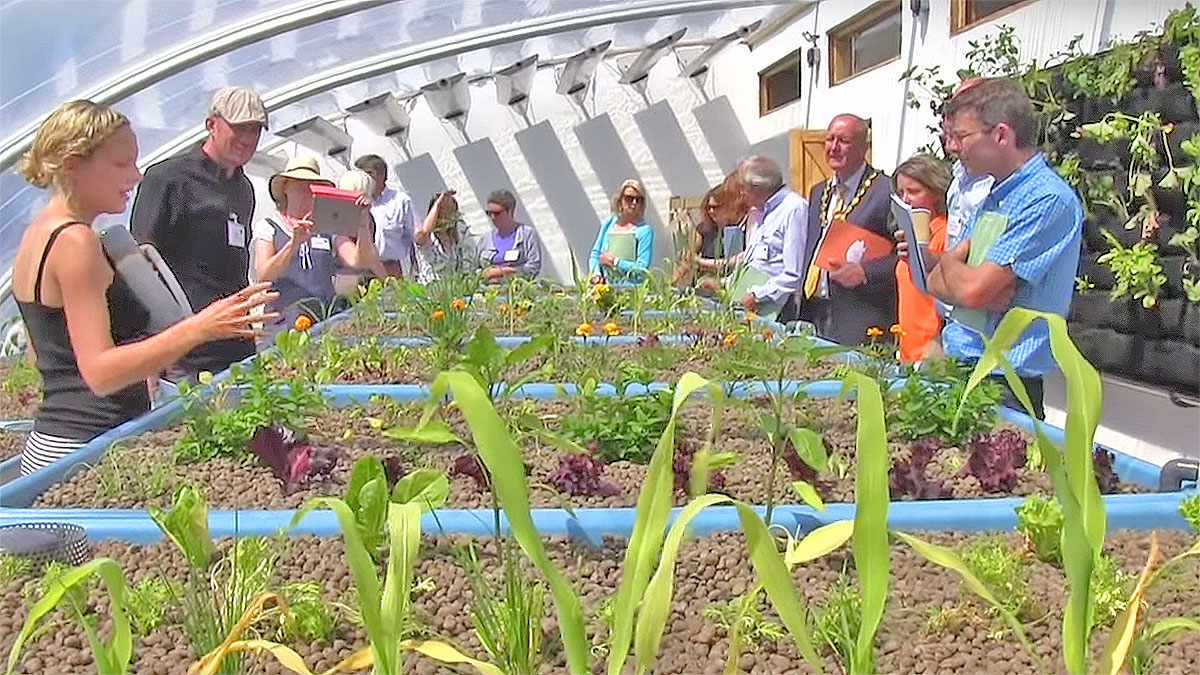Florafelt Aquaponics Fit for a King
King Charles learns about growing organic food with Florafelt hydroponics and live fish at the Humble by Nature Aquaponic Greenhouse in Wye Valley, UK.
Humble by Nature Aquaponic Vertical Garden
A cute little cafe in England's Wye Valley uses vertical gardens and aquaponics to deliver fresh organic vegetables and greens for its customers.
This sustainable food experiment is called Humble by Nature after its founder Kate Humble who works with talented gardeners willing to take on this visionary challenge.
Fish tanks provide fertilized water for all the plants in the greenhouse.
A vertical garden component is featured within the greenhouse to create additional growing space.
Alongside the flooded growing beds, Florafelt Pocket Living Wall System adorns the Northern wall where tomatoes and other vegetables provide year-round food.
The cafe serves delicious meals made mostly from food produced from the greenhouse and nearby farms.
The learning farm offers classes on home-grown agriculture and provides adorable overnight cabins.
Aquaponic Vertical Vegetable Garden
Led by Kate Humble, Aquaponics UK are providing technical expertise to explore sustainable food growing techniques using aquaculture, farming fish, and hydroponics with few inputs and many, high value outputs.
Florafelt Wall Planters are employed to grow a variety of vegetables at a sustainable future farming concept greenhouse. The entire vertical garden system was supplied by Eden Green Walls for the Humble By Nature's Solar Aquaponic Greenhouse in Wye Valley, UK.
Stephen Schofield of Eden Green Walls. Humber By Nature. Solar Aquaponic Greenhouse, Florafelt System
Kate Humble and Aquaponics UK, Humble By Nature
Led by Kate Humble, Aquaponics UK are providing technical expertise to explore sustainable food growing techniques using aquaculture, farming fish, and hydroponics with few inputs and many, high value outputs. The goal is to recycle the nutrient rich water into soil-less vegetable production filtering the water in the process so it can be constantly reused.
This passive solar greenhouse is designed to house a productive, edible ecosystem which is also combined with a variety of other complementary farming techniques such as producing fish and poultry food from insects, growing mushrooms from used coffee grounds and growing poultry, fed from by-products of the system.
Stephen Schofield of Eden Green Walls. Humber By Nature. Solar Aquaponic Greenhouse, Florafelt System











